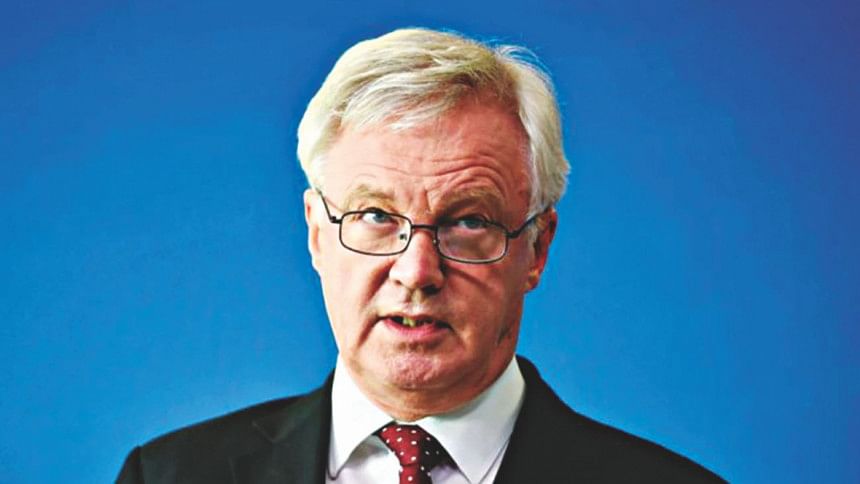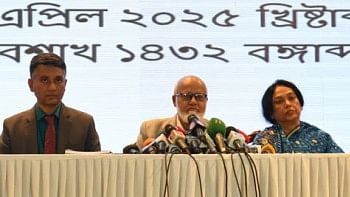How do economists regain the trust of Brexit Secretary David Davis?

On December 7, 2017 during a debate in parliament, David Davis, a high ranking British Cabinet Minister, voiced his frustrations with economists, particularly with their practice of creating economic models and predicting the course of events using these models. When pressed further by his fellow parliamentarians, Davis not only expressed his distrust of the statistics that economists sometimes come up with, but also blamed them for the financial crisis of 2008 and mocked their inability to forecast it. I am not sure after such high-profile slandering, whether economics will go out of fashion in academia and policy discussions! And, equally worse, economists might be losing their jobs to politicians or even if they manage to keep their jobs, if anyone will listen to them.
The views expressed by Davis are somewhat different from what we recently heard from our own Dr Mirza Azizul Islam, who is not only an economist but also held the position of Advisor to the Caretaker Government, Ministries of Finance and Planning in 2007-2008. Dr Islam is one of the many policymakers and economists who last month, at a book launch ceremony at the Policy Research Institute (PRI), implored the Bangladesh government to adopt "an evidence-based policymaking process" for making sound and effective economic decisions, to get better outcomes from these models as well as to avoid any unnecessary damaging effect of their decisions on the economy. These experts also emphasised that reliable and timely data on the economy and its various sectors are required for achieving better outcomes from policy decisions.
These two views, one by Davis and the other by Islam, on the need for data, models and analytical rigour are at odds with each other and seem to indicate some discord between politicians in power and their economic advisors. Obviously, my allegiance is with Dr Islam. This it is not only because I am an economist but I also know for sure that economists are not as speculative as Davis is making them out to be. As we all know Davis is not an economist—actually he is a career politician—but even a discipline based on science, such as medicine and opinion polls, are often wrong. But let me try to explore deeper to understand why in Britain, the birthplace of Adam Smith and economics as we know it, there is suddenly a distrust of economics.
We now know that the root of Davis's outburst stems from the "fake news" that David Davis himself had previously circulated. He had assured the members of British Parliament that exhaustive work had been under way in Whitehall to create Brexit "impact assessments" across nearly 60 sectors of the economy. Obviously, that gave "the impression of tireless data collection, and painstaking analysis." To the chagrin of MPs, during his speech, Davis did an about turn and conceded that some of the studies did not exist. When he was then pressed further and asked whether Theresa May, the Prime Minister (PM) had seen any of the impact assessments, Davis replied: "She won't necessarily have read every single one, they are in excruciating detail." One has to wonder whether even Davis read these assessments.
However, Davis is not alone among high-ranking government officials who have recently given economic models a bad name, but for a different reason. During the recent debate in the USA on the tax-cut bill, the Secretary of the Treasury Steve Mnuchin claimed that a team of analysts were working with various economic models which showed that that the tax cuts would lead to economic growth but have no impact on the budget deficit. And that is what the Republicans wanted to hear and desperately wished that the public would believe. Yet, when pressed constantly by Democrats and journalists to release the economic models and the economic analysis to support his claim that "the tax cut will pay for itself", it emerged that there were no such teams, models, or analyses. The New York Times under the headline, "Ahead of Vote, Promised Treasury Analysis of Tax Bill Proves Elusive", unequivocally asserted that the Secretary of the Treasury was lying. Paul Krugman, Nobel laureate in Economics, said more bluntly, "The (Treasury's tax) document is a shameless attempt to fool the public. In fact there was no economic analysis; Trump officials just made up numbers that would give them the result they wanted."
So once again, the scorecard for this "Game of Disinformation" played by government officials indicates that the following score: Economic Models: 2 Politicians: 0
Let me end this note with a little bit of philosophical reflection. Never did I imagine that I would live to see this day when a British Minister is disparaging models while a Bangladeshi ex-minister, in contrast, is embracing models, assessments, and "evidenced-based policy". Britain is a highly developed market economy with top-notch economists, statisticians, and data centres supporting the government's bureaucratic machine. Nonetheless, Davis is throwing up his hand and indicating that since anything can happen, so we might as well give up modelling. On the other hand, Bangladesh is resource poor and our data quality is not the best but our bureaucrats, researchers and policy-makers make the best of what we have.
I do not expect that in the coming months, Britain will proceed to negotiate with EU relying on guesswork. Whether Davis trusts his economic analysts or not, the British PM does. Last week at a summit in Brussels, Theresa May indicated that UK is prepared to pay 39 billion pounds (or USD 52 billion) for the Brexit divorce settlement. It thus appears that regardless of what Davis told the general public, he advised his PM well. And with these numbers in hand, she knows which deals to extract in the soon-to-start trade talks, since the cost of the divorce needs to be compatible with the benefits, including the gains from staying in EU's single market.
Dr Abdullah Shibli is an economist and Senior Research Fellow at International Sustainable Development Institute (ISDI), a think tank based in Boston, USA.





Comments